Posted on 25 October 2023
Introduction to Buying Ski Properties OffSeason in France and Switzerland
In the world of ski properties, the term “offseason” refers to the period outside the peak skiing months, typically the warmer months of the year. During this time, ski resorts are less crowded, and the hustle and bustle of the ski season subsides.
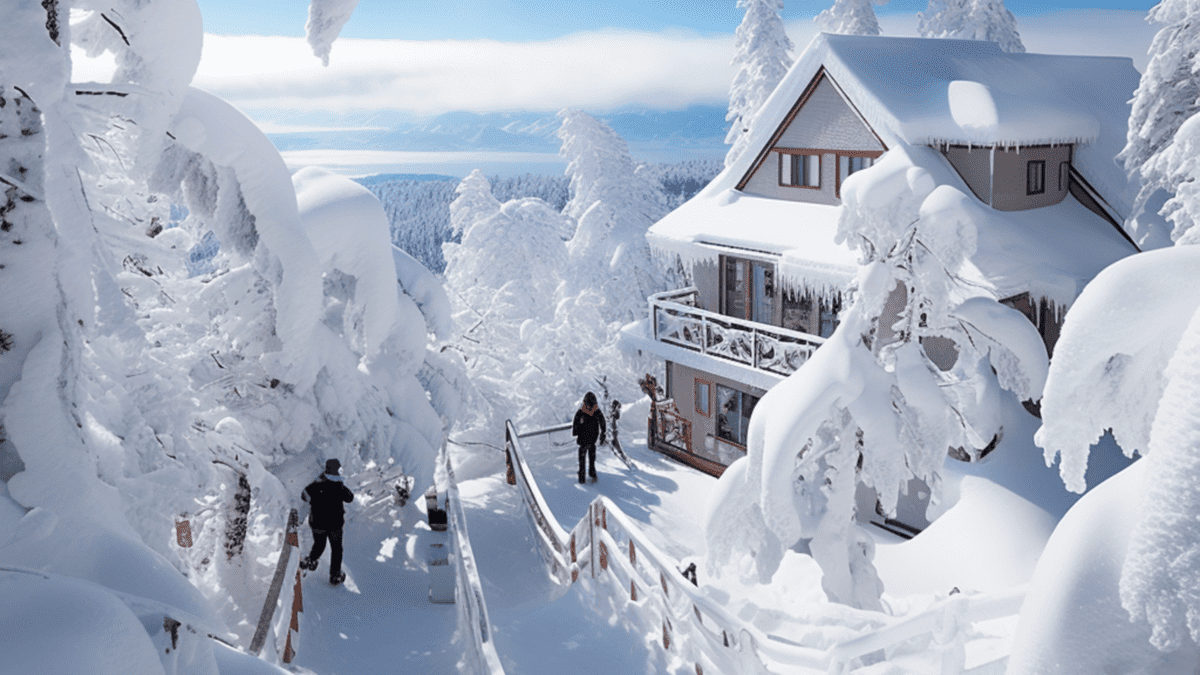
Why Consider Buying Offseason?
Buying ski properties offseason presents a unique opportunity for property buyers and investors. It’s during this period that property prices can be more negotiable1, and the competition among buyers is often less intense. This situation can lead to better deals and potentially high returns on investment.
Offseason Impact on the French and Swiss Market
The offseason significantly impacts the ski property market in France and Switzerland. As the demand for accommodations decreases, property owners often look to sell, leading to an increase in property availability2. This trend provides a wider selection for potential buyers, increasing the chances of finding a property that perfectly fits their needs.
In conclusion, the offseason presents a strategic window for those looking to invest in ski properties in France and Switzerland. By understanding the dynamics of the offseason market, buyers and investors can make informed decisions that maximise their investment potential.
Unveiling the Advantages of OffSeason Property Buying
Investing in ski properties during the offseason can be a strategic move for savvy buyers. The offseason presents an opportunity to take advantage of lower prices3 and negotiate favourable deals. Sellers are more motivated to sell during this period, providing buyers with the potential for significant cost savings. By purchasing during the offseason, you can maximise your financial gains and potentially increase your return on investment.
The offseason also offers a wider range of properties4 to choose from. With fewer buyers in the market, there is an influx of listings, giving buyers a diverse selection to explore. This expanded variety ensures that you find the perfect property that aligns with your vision.
Moreover, offseason is often considered a buyer’s market. With reduced competition, you have more negotiating power. Sellers are more willing to accommodate buyer requests, whether it’s price adjustments, flexible terms, or additional incentives. This buyer-centric market allows you to secure the best possible deal and make your property purchase a truly rewarding experience.
Highlighting the Disadvantages of OffSeason Property Buying
Offseason property buying, while potentially lucrative, does come with its own set of challenges. One of the primary risks associated with offseason buying is the potential for lower rental demand5. This can impact the rental income potential of the property, particularly if it is located in an area that is heavily dependent on seasonal tourism.
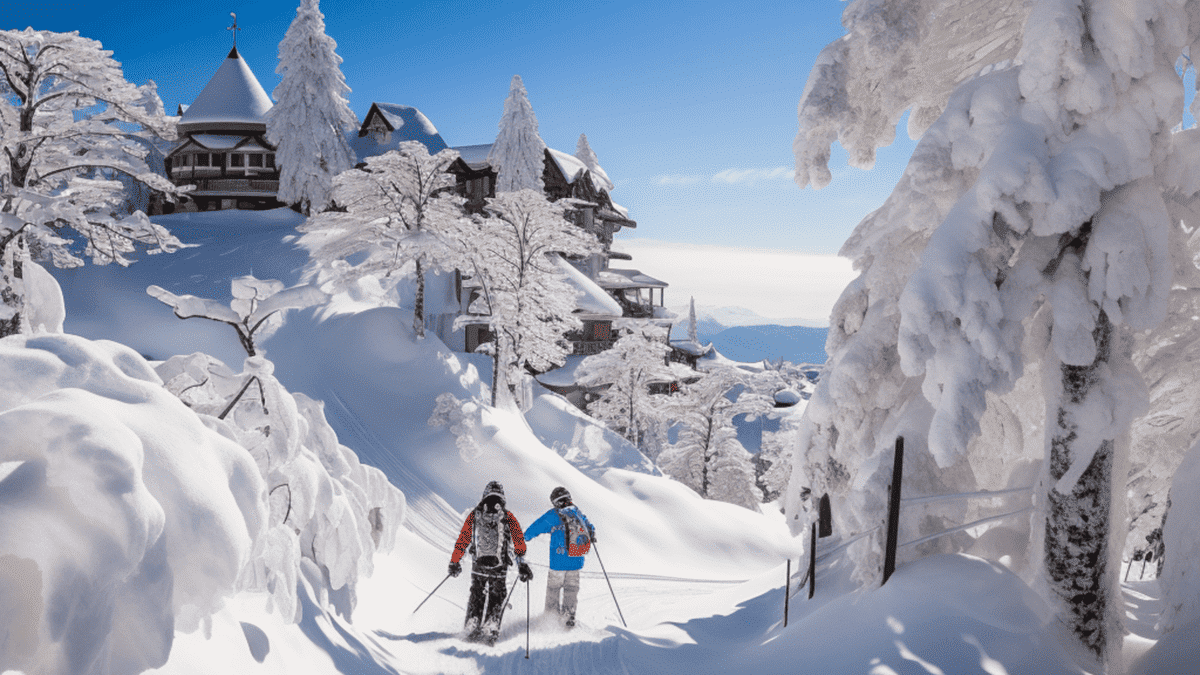
Property Maintenance and Upkeep Challenges
The offseason can also present challenges in terms of property maintenance and upkeep. Properties may be subject to harsh weather conditions, leading to potential damage and increased maintenance costs6. This can be particularly problematic for investors who are not located near the property and may struggle to manage these issues remotely.
Navigating the Offseason Challenges
Despite these potential risks, with careful planning and strategic decision-making, offseason property buying can still be a profitable venture. Skiing Property is equipped to help navigate these challenges, offering comprehensive property management services to ensure your investment is well-maintained and optimised for rental income, regardless of the season.
France vs Switzerland: A Comparative Analysis of OffSeason Ski Property Buying
When considering off-season ski property buying, both France and Switzerland present attractive opportunities, albeit with distinct characteristics.
France’s Ski Property Market
In France, the ski property market is known for its diversity and affordability7. Properties range from cosy apartments in popular resorts to spacious chalets with stunning mountain views. The legal process is straightforward, and there are no restrictions on foreign ownership. However, property taxes and maintenance costs can be high, and rental yields may vary depending on the location and season.
Switzerland’s Ski Property Market
Switzerland, on the other hand, is renowned for its high-end, luxury ski properties. The market is more exclusive, with properties often located in prestigious resorts known for their world-class amenities and breathtaking landscapes. However, the Swiss market has stricter regulations for non-residents, which can make the buying process more complex. Financially, properties tend to hold their value well, offering potential for long-term capital growth8.
In summary, both markets offer unique advantages depending on your investment goals and preferences. It’s crucial to understand the legal and financial considerations in each country to make an informed decision.
Understanding Market Trends for Ski Properties in France and Switzerland
The ski property markets in France and Switzerland are currently experiencing a surge in demand9, driven by the rise in remote working and the appeal of mountain living. Prime Alpine resorts such as Chamonix, Verbier, and Zermatt are particularly sought after, offering not only excellent skiing opportunities but also a vibrant year-round lifestyle.
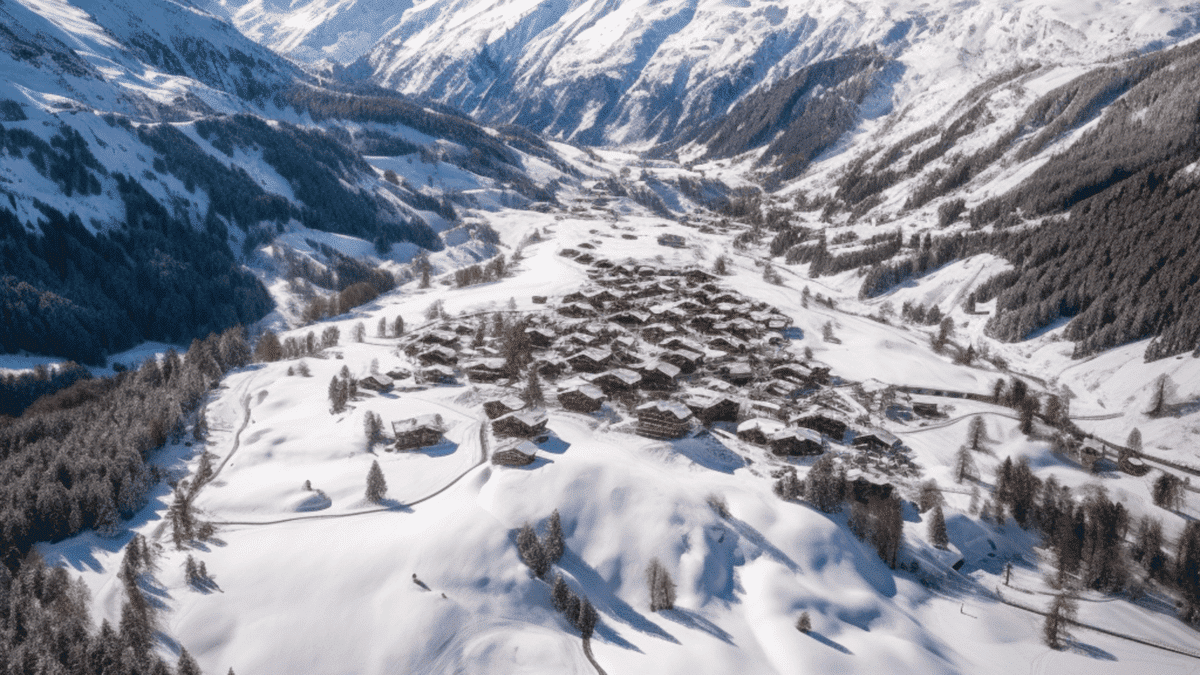
Offseason Buying Trends
A notable trend in the market is the increasing popularity of offseason buying. Many buyers are recognising the potential benefits of offseason purchases, including lower prices and the opportunity for summer rental income10. With the development of summer activities in ski resorts, such as hiking and mountain biking, owning a property in these regions can provide a year-round income stream.
Future Market Predictions
Looking ahead, the ski property market in France and Switzerland is expected to remain strong. The ongoing trend of remote working is likely to continue driving demand for properties in these regions, as more individuals seek a balance between work and leisure. Additionally, the appeal of the Alps as a year-round destination is expected to attract buyers seeking a lifestyle change and investment opportunities.
Legal and Financial Considerations for OffSeason Ski Property Buying
When venturing into the realm of offseason ski property buying in France and Switzerland, it’s crucial to understand the legal and financial implications.
- Legal Aspects: In both France and Switzerland, foreign buyers must comply with specific regulations11. In France, the “Droit de Preemption” allows local authorities to purchase property first. In Switzerland, the “Lex Koller” legislation limits the amount of property that foreigners can buy.
- Financial Implications: Offseason buying can offer financial advantages such as lower prices and more room for negotiation. However, potential buyers should be aware of additional costs like notary fees, land registry taxes, and potential renovation costs for offseason properties12.
- Navigating Considerations: To navigate these complexities, we recommend seeking advice from experts familiar with local laws and market conditions. At Skiing Property, we provide comprehensive guidance to our clients, ensuring they understand all legal and financial implications before making a decision. Our aim is to make the buying process as seamless and transparent as possible.
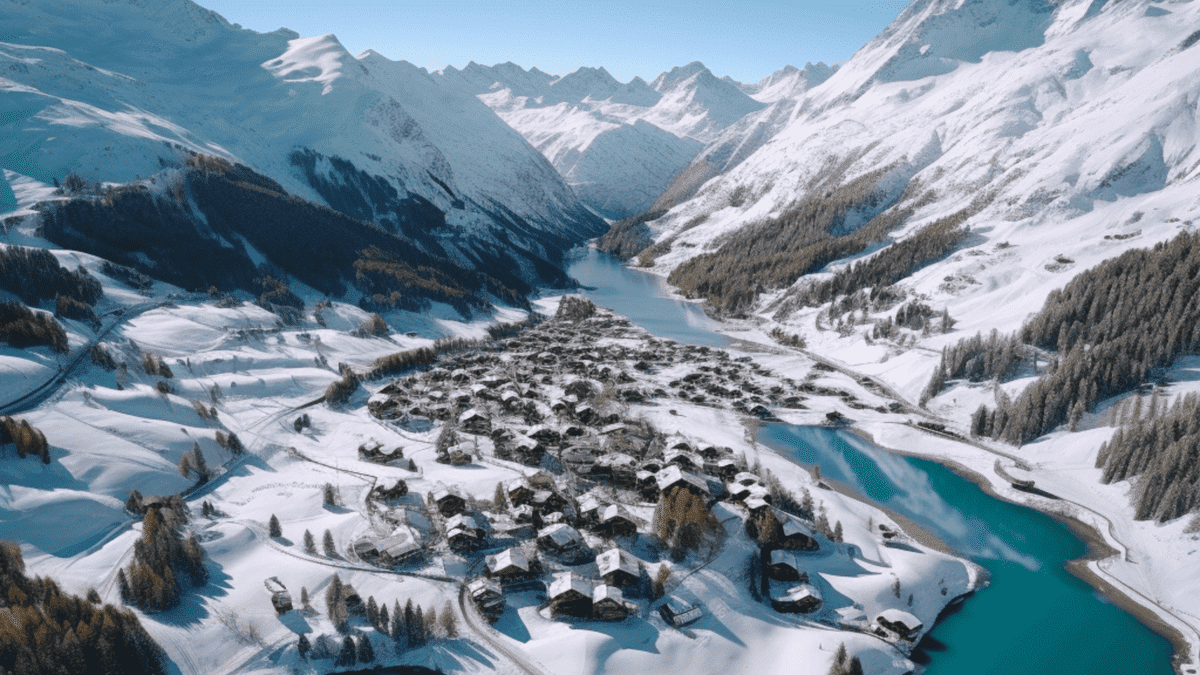
Exploring the Potential for Rental Income from Ski Properties
Investing in ski properties can provide significant rental income potential, particularly during the ski season13. High demand for accommodation from tourists and winter sports enthusiasts allows property owners to charge premium rates, resulting in substantial rental income.
Offseason buying can enhance returns by allowing investors to secure properties at lower prices. This reduced initial investment can lead to higher profit margins when the property is rented out during the ski season.
Several factors influence the rental income potential of ski properties. The location of the property plays a crucial role in determining rental rates. Properties situated in popular ski resorts or in close proximity to ski lifts tend to command higher rental prices. Additionally, the size and quality of the property can also impact rental income. Luxury and larger properties often attract higher rental rates, appealing to those seeking a premium experience.
The length of the ski season is another important factor to consider. Resorts with longer ski seasons provide extended rental periods, increasing the potential for rental income. It is essential to research and choose a location with a ski season that aligns with your investment goals14.
Furthermore, it is worth considering the property’s appeal during the offseason. While the ski season may be the primary source of rental income, properties that offer year-round activities such as hiking, mountain biking, or access to other attractions can provide additional rental income opportunities during the offseason.
Maintenance and Upkeep of Ski Properties During the OffSeason
Maintaining ski properties during the offseason involves several key responsibilities. These include ensuring the property’s structural integrity, preventing damage from weather conditions, and keeping the property secure. Regular inspections are necessary to identify and address any potential issues early15.
The costs associated with offseason property upkeep can vary, but they typically include expenses for routine maintenance, repairs, security measures, and insurance. These costs can be significant, so effective management is crucial to avoid unnecessary expenses and ensure the property’s value is preserved16.
To manage these responsibilities and costs effectively, property owners can consider several strategies. Regular Maintenance is a proactive approach that can prevent costly repairs in the future. This includes tasks such as checking the roof for damage, cleaning gutters, and servicing heating systems. Hiring a Property Management Company can also be beneficial. They can handle all aspects of property upkeep, from routine maintenance to emergency repairs, providing peace of mind for owners. Lastly, Adequate Insurance Coverage is essential to protect against unforeseen events or damages.
By taking these steps, property owners can ensure their ski properties remain in excellent condition during the offseason, ready for the peak season ahead.
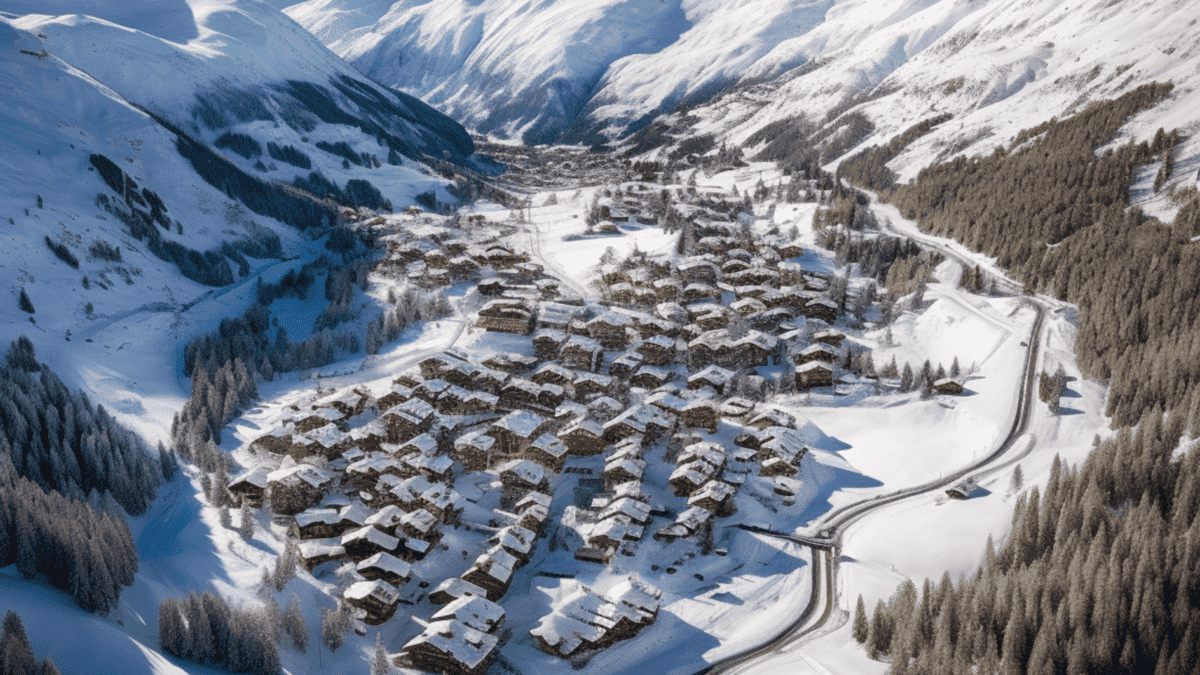
Case Study: Successful OffSeason Ski Property Investments
In the realm of offseason ski property investments, several success stories stand out, particularly in France and Switzerland17. These investors have adopted strategic approaches, focusing on location, renovation, and diversified usage of the properties.
One notable example is an investor who purchased a chalet in Chamonix, France, during the offseason. The investor capitalised on the lower prices during this period, securing a prime property at a competitive rate. Following the purchase, strategic renovations were undertaken to enhance the property’s appeal, resulting in a significant increase in its market value18.
Similarly, in Verbier, Switzerland, an investor acquired a property during the offseason and transformed it into a year-round attraction. The property was promoted not only for its skiing opportunities but also for its access to hiking trails, mountain biking routes, and cultural events, ensuring a steady income throughout the year.
These case studies underscore the importance of strategic planning and market understanding in offseason ski property investments. Potential buyers can learn valuable lessons from these investors, such as the importance of location, the potential of property improvement, and the benefits of diversifying the usage of the property. By adopting these strategies, investors can maximise the potential of their offseason ski property investments.
Preparing for Your OffSeason Ski Property Investment
As potential buyers prepare for an offseason ski property investment, it’s crucial to conduct thorough research and leverage the information provided in this guide19. Start by understanding the local market trends, pricing, and the potential return on investment. This will help you make an informed decision and ensure your investment aligns with your financial goals.
Leveraging Information and Resources
This guide is a comprehensive resource designed to assist you throughout the buying process. It provides insights into market trends, property management, and marketing strategies, which are essential for maximising your rental income. Use this information to formulate a robust investment strategy.
In addition to this guide, Skiing Property offers a range of resources to assist you. Our website features an extensive property portfolio, providing detailed information and high-quality images of available properties. Furthermore, our dedicated team of real estate agents is always ready to answer your queries and provide expert advice20.
Remember, preparation is key to a successful investment. By understanding the market, leveraging the information in this guide, and utilising the resources provided by Skiing Property, you can confidently embark on your offseason ski property investment journey.
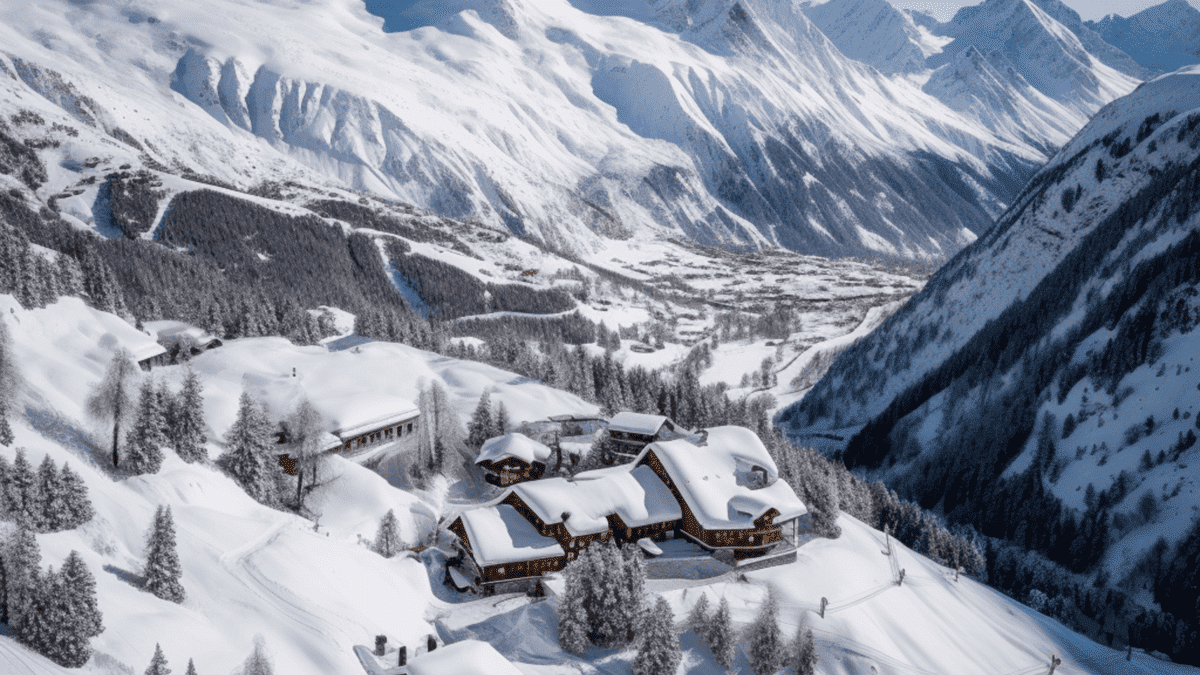
Conclusion: Making an Informed Decision on OffSeason Ski Property Buying
Making an informed decision on offseason ski property buying involves a careful evaluation of both the advantages and disadvantages. Potential buyers should consider factors such as location, potential rental income, and property maintenance21.
Location is paramount; properties in popular ski resorts can provide a steady stream of rental income even during the offseason. However, buyers should also be mindful of the potential for increased competition in these prime areas.
The potential for rental income is another significant factor. Properties with high rental demand can provide a substantial return on investment. However, market trends and rental demand can fluctuate, so it’s crucial to stay informed and realistic about potential earnings.
Property maintenance is another consideration. Ski properties require regular upkeep, especially during the offseason when harsh weather conditions can take a toll. Buyers should factor in the cost and logistics of property management into their decision-making process.
To ensure a successful investment, buyers should seek expert guidance. At Skiing Property, we provide valuable insights and advice, helping buyers navigate through market fluctuations and make sound investment decisions. We believe in transparency and honesty, providing detailed information about each property, so buyers can make an informed decision.
Contact Us for More Information and Assistance
At Skiing Property, we are committed to assisting you in your offseason ski property investment. Our team of experts is well-versed in the intricacies of the real estate market, offering personalised solutions tailored to your unique needs and preferences. We understand the importance of making the right investment decisions, and we are here to guide you every step of the way.
We offer a comprehensive range of services to support buyers and investors. From sourcing the perfect property to handling all negotiations and paperwork, we ensure a smooth and hassle-free transaction. Our team also provides ongoing support and assistance, even after the deal is closed, managing all aspects of property maintenance and tenant relationships.
Getting in touch with us is easy. You can reach out to us via phone, email, or through our user-friendly website. Our dedicated customer service team is available to assist you with any inquiries and guide you through the process. Whether you’re a first-time buyer, an experienced investor, or a homeowner looking to maximise your returns, we have the expertise and resources to help you achieve your goals. Contact Skiing Property today and let us help you make your property dreams a reality.
- 1: Tips for Buying Colorado Ski Property | T.D. Smith, Realtor – https://tdsmith.com/blog/dos-and-donts-of-investing-in-ski-properties-in-mountain-village-co/
- 2: Ski Property Report 2022 – https://content.knightfrank.com/research/353/documents/en/ski-property-report-2022-8489.pdf
- 3: When Is The Best Time To List A Ski Property? – SnowOnly – https://snowonly.com/articles/when-is-the-best-time-to-list-a-ski-property-for-sale
- 4: Advantages to Buying a Home During Off-Season – https://www.chase.com/personal/mortgage/education/buying-a-home/advantages-to-buying-a-home-during-the-off-season
- 5: The Impact of Seasonality on the Real Estate Market – https://www.linkedin.com/pulse/impact-seasonality-real-estate-market-genene-huston
- 6: Stop Overspending on Maintenance: 5 Tips to Reduce Costs – https://www.linkedin.com/pulse/stop-overspending-maintenance-5-tips-reduce-costs-roland-charles
- 7: How is the ski property market faring in France? – https://www.propertyguides.com/france/news/how-is-the-ski-property-market-faring/
- 8: Ski Property Report 2023 – https://www.naef-prestige.ch/wp-content/uploads/2022/11/WEB-NPKF_SKI-REPORT_Brochure-2023_20221116_UK_v2.pdf
- 9: Ski Property Report 2023 – https://content.knightfrank.com/research/353/documents/en/ski-property-report-2023-9528.pdf
- 10: Why Buying in the Off-Season Makes sense. – https://www.obxislandguys.com/why-buying-in-the-off-season-makes-sense
- 11: Purchasing property in Switzerland as a foreign national – https://www.ch.ch/en/housing/homeownership/buying-property/purchasing-property-in-switzerland-as-a-foreign-na
- 12: CO Ski Vacation Home w/ Week to Week Rental. Good Idea? – https://www.biggerpockets.com/forums/52/topics/111936-co-ski-vacation-home-w-week-to-week-rental-good-idea
- 13: Ski Maintenance: A Guide to Great Performance – https://elanskis.com/us_en/ski-maintenance-a-guide-to-great-performance
- 14: How Does Maintenance Impact the Value of Real Estate? – https://luxurypropertycare.com/maintenance-impact-real-estate-value/
- 15: France And Switzerland: The Most Popular Destinations To … – https://www.forbesglobalproperties.com/trends/france-and-switzerland-the-most-popular-destinations-to-buy-ski-properties
- 16: Easy Guide to Investing in Ski Property – https://www.skiingproperty.com/2022/04/13/investing-in-ski-property/
- 17: Testimonials – https://www.spotblue.com/testimonials/
- 18: 6 Things Nobody Tells You About Buying a Home in Ski … – https://www.apartmenttherapy.com/buying-a-home-in-ski-country-37193957
- 19: The Pros And Cons Of Owning Property In Barbados – https://www.spotblue.com/directory/barbados/the-pros-and-cons-of-owning-property-in-barbados/
- 20: Popular Mechanics – Jan 2000 – Page 2 – Google Books Result – https://books.google.com/books?id=LOsPSCAN29gC&pg=PA2&lpg=PA2&dq=-+Personalised+solutions+for+ski+property+investment+Spot+Blue+expertise%3Csup%3E23%3C/sup%3E&source=bl&ots=k08lrp1WTJ&sig=ACfU3U1Szgzzv-Ituy0JSbi-evXnKKtYhw&hl=en&sa=X&ved=2ahUKEwjg4aSRk4SCAxV_tokEHVo-AfcQ6AF6BAgMEAM
- 21: Current owner wants to stay after closing – https://www.biggerpockets.com/forums/311/topics/188826-current-owner-wants-to-stay-after-closing

